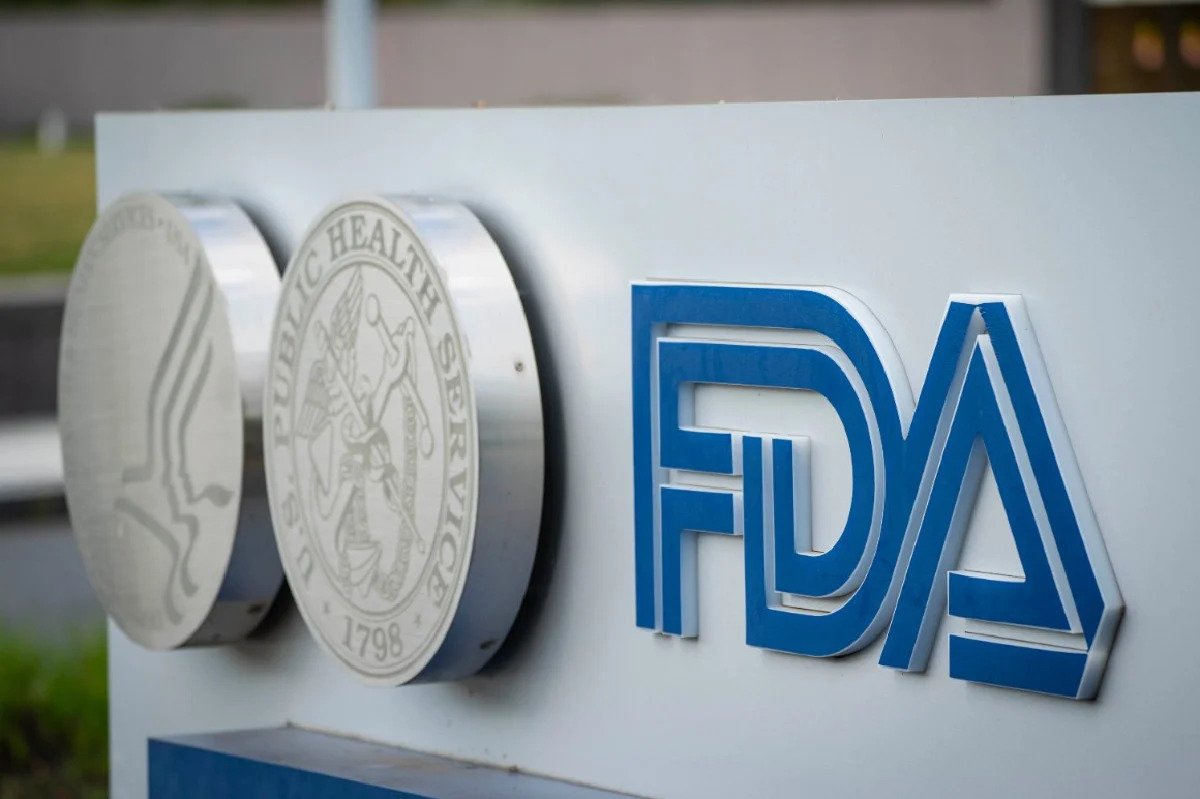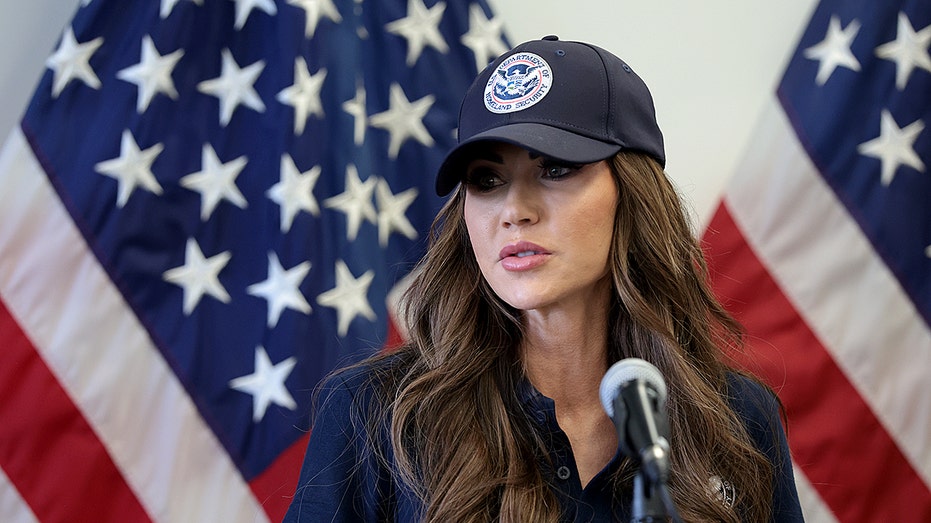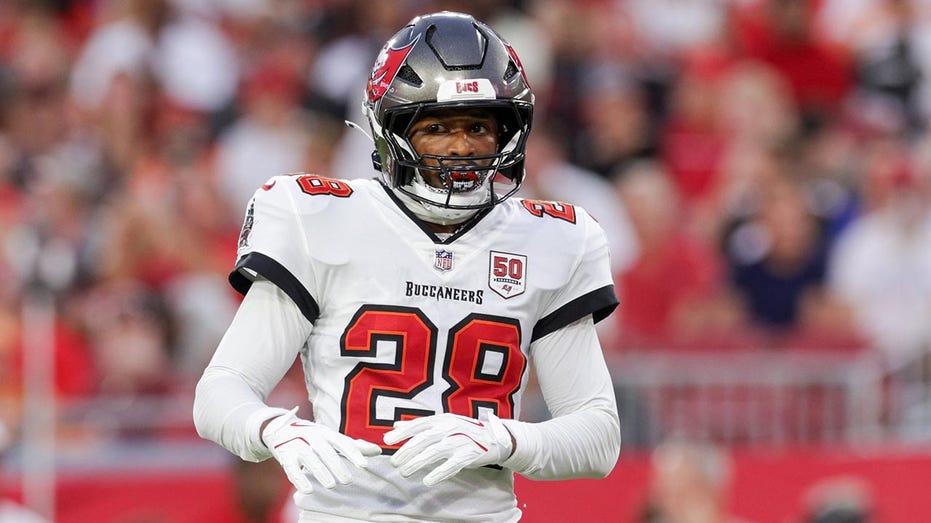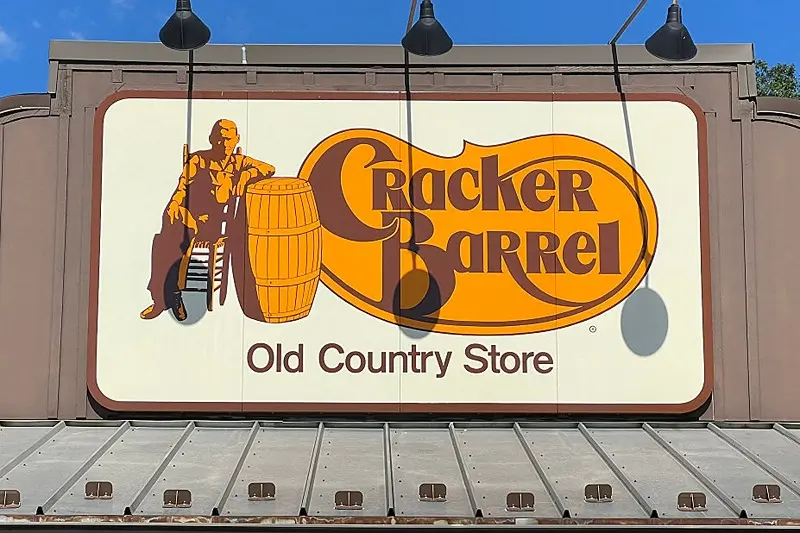FDA Revokes Emergency Authorization for COVID-19 Vaccines
Federal regulators have revoked emergency authorization for COVID-19 vaccines, according to documents made public on Aug. 27. The Food and Drug Administration withdrew the emergency authorizations for vaccines from Pfizer-BioNTech, Moderna, and Novavax. Dr. Vinay Prasad, the FDA’s top vaccine official, said in memorandums that the withdrawals were happening in part due to the FDA recently extending approval for Moderna’s vaccine to individuals as young as six months of age who were targeted by the emergency authorizations. The FDA first issued emergency authorizations for COVID-19 vaccines in late 2020, on the basis of COVID-19 constituting an emergency and there being no available approved products to prevent the illness. “The emergency use authorizations for Covid vaccines, once used to justify broad mandates on the general public during the Biden administration, are now rescinded,” Health Secretary Robert F. Kennedy Jr., the head of the Department of Health and Human Services (HHS), said on X on Aug. 27. At the same time, the FDA, which is part of HHS, approved the Pfizer COVID-19 vaccine for older adults as well as children as young as 5 years of age who have at least one condition that officials say puts them at higher risk of severe COVID-19 outcomes. Pfizer noted the development in a brief statement. Pfizer, Moderna, and Novavax said their shots would be available soon. Regulators previously issued similar approvals for two COVID-19 vaccines from Moderna and one COVID-19 vaccine from Novavax. “We are proud to help ensure Americans will have the latest protection against currently circulating strains this respiratory virus season,” Stephane Bancel, Moderna’s CEO, said in a statement. Those approvals diverged from previous approvals, which had not limited access to any populations save for infants less than 6 months old. Combined, the actions mean that FDA clearance is no longer in place for an estimated 240 million Americans, although doctors could still provide the vaccines off-label to those people. Insurers may not cover vaccines administered off-label, according to health groups. “We are committed to ongoing coverage of vaccines to ensure access and affordability for this respiratory virus season,” AHIP, an insurer trade association, said in a previous statement. Kennedy stated that “These vaccines are available for all patients who choose them after consulting with their doctors.” Per federal law, the FDA approves products it determines are “safe, pure, and potent.” Emergency authorizations, in contrast, can be offered only under certain circumstances, such as during a public health emergency, and are for products that officials believe “may be effective” in treating or preventing a life-threatening disease or condition.Updated Approvals Dr. Marty Makary, the FDA’s commissioner, and Prasad, its top vaccine official at the time, signaled the change in May, when they said that the FDA would stop approving COVID-19 vaccines for many Americans absent clinical trial data. “The FDA can only approve products if it concludes, based on scientific evidence, that the benefit-to-harm balance is favorable. And we simply need more data to have that confidence for younger individuals at low-risk of severe disease,” Prasad said at the time. In the United States, regulators in recent years have been authorizing updated COVID-19 vaccines annually in a bid to counter waning effectiveness and better match circulating variants. The model is based on the historical approach to influenza vaccines. Regulators in 2024 cleared updated shots from Moderna, Pfizer, and Novavax without human data, citing animal tests and data from trials for previous versions. Most Americans have not taken one of those COVID-19 vaccines. Just 13 percent of children and 23 percent of adults had received one of them as of April 26, according to the latest statistics available from the Centers for Disease Control and Prevention. Makary and Prasad also said they would continue approving updated versions of the COVID-19 vaccines for all individuals 65 and older, as well as younger people with one or more of the risk factors that increase the likelihood of severe COVID-19 outcomes. These approvals would be based solely on immunobridging data, or testing that shows that vaccines trigger an antibody response against the disease. Around that time, the FDA approved Novavax’s vaccine, previously under emergency use authorization, for people 65 and older, and for individuals ages 12 to 64 with at least one risk factor. More recently, the agency approved a new Moderna vaccine for the same populations, and Moderna’s existing vaccine for the elderly and for individuals aged 6 months to 64 years who have at least one risk factor. The new approval of Pfizer’s vaccine is for the elderly and people aged 5 to 64 who have one or more risk factors, Pfizer said. That means Moderna’s vaccine is the only one available

 Federal regulators have revoked emergency authorization for COVID-19 vaccines, according to documents made public on Aug. 27.
The Food and Drug Administration withdrew the emergency authorizations for vaccines from Pfizer-BioNTech, Moderna, and Novavax.
Dr. Vinay Prasad, the FDA’s top vaccine official, said in memorandums that the withdrawals were happening in part due to the FDA recently extending approval for Moderna’s vaccine to individuals as young as six months of age who were targeted by the emergency authorizations.
The FDA first issued emergency authorizations for COVID-19 vaccines in late 2020, on the basis of COVID-19 constituting an emergency and there being no available approved products to prevent the illness.
“The emergency use authorizations for Covid vaccines, once used to justify broad mandates on the general public during the Biden administration, are now rescinded,” Health Secretary Robert F. Kennedy Jr., the head of the Department of Health and Human Services (HHS), said on X on Aug. 27.
At the same time, the FDA, which is part of HHS, approved the Pfizer COVID-19 vaccine for older adults as well as children as young as 5 years of age who have at least one condition that officials say puts them at higher risk of severe COVID-19 outcomes.
Pfizer noted the development in a brief statement. Pfizer, Moderna, and Novavax said their shots would be available soon.
Regulators previously issued similar approvals for two COVID-19 vaccines from Moderna and one COVID-19 vaccine from Novavax.
“We are proud to help ensure Americans will have the latest protection against currently circulating strains this respiratory virus season,” Stephane Bancel, Moderna’s CEO, said in a statement.
Those approvals diverged from previous approvals, which had not limited access to any populations save for infants less than 6 months old.
Combined, the actions mean that FDA clearance is no longer in place for an estimated 240 million Americans, although doctors could still provide the vaccines off-label to those people.
Insurers may not cover vaccines administered off-label, according to health groups. “We are committed to ongoing coverage of vaccines to ensure access and affordability for this respiratory virus season,” AHIP, an insurer trade association, said in a previous statement.
Kennedy stated that “These vaccines are available for all patients who choose them after consulting with their doctors.”
Per federal law, the FDA approves products it determines are “safe, pure, and potent.” Emergency authorizations, in contrast, can be offered only under certain circumstances, such as during a public health emergency, and are for products that officials believe “may be effective” in treating or preventing a life-threatening disease or condition.Updated Approvals
Dr. Marty Makary, the FDA’s commissioner, and Prasad, its top vaccine official at the time, signaled the change in May, when they said that the FDA would stop approving COVID-19 vaccines for many Americans absent clinical trial data.
“The FDA can only approve products if it concludes, based on scientific evidence, that the benefit-to-harm balance is favorable. And we simply need more data to have that confidence for younger individuals at low-risk of severe disease,” Prasad said at the time.
In the United States, regulators in recent years have been authorizing updated COVID-19 vaccines annually in a bid to counter waning effectiveness and better match circulating variants. The model is based on the historical approach to influenza vaccines.
Regulators in 2024 cleared updated shots from Moderna, Pfizer, and Novavax without human data, citing animal tests and data from trials for previous versions.
Most Americans have not taken one of those COVID-19 vaccines. Just 13 percent of children and 23 percent of adults had received one of them as of April 26, according to the latest statistics available from the Centers for Disease Control and Prevention.
Makary and Prasad also said they would continue approving updated versions of the COVID-19 vaccines for all individuals 65 and older, as well as younger people with one or more of the risk factors that increase the likelihood of severe COVID-19 outcomes. These approvals would be based solely on immunobridging data, or testing that shows that vaccines trigger an antibody response against the disease.
Around that time, the FDA approved Novavax’s vaccine, previously under emergency use authorization, for people 65 and older, and for individuals ages 12 to 64 with at least one risk factor. More recently, the agency approved a new Moderna vaccine for the same populations, and Moderna’s existing vaccine for the elderly and for individuals aged 6 months to 64 years who have at least one risk factor.
The new approval of Pfizer’s vaccine is for the elderly and people aged 5 to 64 who have one or more risk factors, Pfizer said.
That means Moderna’s vaccine is the only one available for infants and toddlers, as had been expected.
While Moderna and Novavax did not protest the move, Pfizer conveyed concerns, including how there will be only one vaccine, from Moderna, available for children aged 4 and younger, according to the FDA.
Prasad said in one of the memos that “Pfizer has not identified any evidence showing that the manufacturer of the currently-approved COVID-19 vaccine for this age group is unable to supply the relevant population.”Change in Recommendations
The revocations come several months after the CDC changed its COVID-19 recommendations.
The agency had for years advised all individuals aged 6 months and older to receive a COVID-19 vaccine.
The updated schedules no longer recommend COVID-19 vaccination for healthy children and pregnant women.
The American Academy of Pediatrics recently recommended that all children aged 6 months to 23 months receive a COVID-19 vaccine, while the American College of Obstetricians and Gynecologists advised all pregnant women to get one.
Regulators cited the public health emergency over COVID-19 in their most recent emergency authorizations for the COVID-19 vaccines in 2024. Then-Health Secretary Xavier Becerra on Jan. 1 extended the COVID-19 health emergency to Dec. 31, 2029.
Kennedy said on Wednesday that he promised to end COVID-19 vaccine mandates, to keep vaccines available to people who want them, to require placebo-controlled trials, and to “end the emergency.” The FDA actions “accomplished all four goals,” he said.
From theepochtimes.com
Federal regulators have revoked emergency authorization for COVID-19 vaccines, according to documents made public on Aug. 27.
The Food and Drug Administration withdrew the emergency authorizations for vaccines from Pfizer-BioNTech, Moderna, and Novavax.
Dr. Vinay Prasad, the FDA’s top vaccine official, said in memorandums that the withdrawals were happening in part due to the FDA recently extending approval for Moderna’s vaccine to individuals as young as six months of age who were targeted by the emergency authorizations.
The FDA first issued emergency authorizations for COVID-19 vaccines in late 2020, on the basis of COVID-19 constituting an emergency and there being no available approved products to prevent the illness.
“The emergency use authorizations for Covid vaccines, once used to justify broad mandates on the general public during the Biden administration, are now rescinded,” Health Secretary Robert F. Kennedy Jr., the head of the Department of Health and Human Services (HHS), said on X on Aug. 27.
At the same time, the FDA, which is part of HHS, approved the Pfizer COVID-19 vaccine for older adults as well as children as young as 5 years of age who have at least one condition that officials say puts them at higher risk of severe COVID-19 outcomes.
Pfizer noted the development in a brief statement. Pfizer, Moderna, and Novavax said their shots would be available soon.
Regulators previously issued similar approvals for two COVID-19 vaccines from Moderna and one COVID-19 vaccine from Novavax.
“We are proud to help ensure Americans will have the latest protection against currently circulating strains this respiratory virus season,” Stephane Bancel, Moderna’s CEO, said in a statement.
Those approvals diverged from previous approvals, which had not limited access to any populations save for infants less than 6 months old.
Combined, the actions mean that FDA clearance is no longer in place for an estimated 240 million Americans, although doctors could still provide the vaccines off-label to those people.
Insurers may not cover vaccines administered off-label, according to health groups. “We are committed to ongoing coverage of vaccines to ensure access and affordability for this respiratory virus season,” AHIP, an insurer trade association, said in a previous statement.
Kennedy stated that “These vaccines are available for all patients who choose them after consulting with their doctors.”
Per federal law, the FDA approves products it determines are “safe, pure, and potent.” Emergency authorizations, in contrast, can be offered only under certain circumstances, such as during a public health emergency, and are for products that officials believe “may be effective” in treating or preventing a life-threatening disease or condition.Updated Approvals
Dr. Marty Makary, the FDA’s commissioner, and Prasad, its top vaccine official at the time, signaled the change in May, when they said that the FDA would stop approving COVID-19 vaccines for many Americans absent clinical trial data.
“The FDA can only approve products if it concludes, based on scientific evidence, that the benefit-to-harm balance is favorable. And we simply need more data to have that confidence for younger individuals at low-risk of severe disease,” Prasad said at the time.
In the United States, regulators in recent years have been authorizing updated COVID-19 vaccines annually in a bid to counter waning effectiveness and better match circulating variants. The model is based on the historical approach to influenza vaccines.
Regulators in 2024 cleared updated shots from Moderna, Pfizer, and Novavax without human data, citing animal tests and data from trials for previous versions.
Most Americans have not taken one of those COVID-19 vaccines. Just 13 percent of children and 23 percent of adults had received one of them as of April 26, according to the latest statistics available from the Centers for Disease Control and Prevention.
Makary and Prasad also said they would continue approving updated versions of the COVID-19 vaccines for all individuals 65 and older, as well as younger people with one or more of the risk factors that increase the likelihood of severe COVID-19 outcomes. These approvals would be based solely on immunobridging data, or testing that shows that vaccines trigger an antibody response against the disease.
Around that time, the FDA approved Novavax’s vaccine, previously under emergency use authorization, for people 65 and older, and for individuals ages 12 to 64 with at least one risk factor. More recently, the agency approved a new Moderna vaccine for the same populations, and Moderna’s existing vaccine for the elderly and for individuals aged 6 months to 64 years who have at least one risk factor.
The new approval of Pfizer’s vaccine is for the elderly and people aged 5 to 64 who have one or more risk factors, Pfizer said.
That means Moderna’s vaccine is the only one available for infants and toddlers, as had been expected.
While Moderna and Novavax did not protest the move, Pfizer conveyed concerns, including how there will be only one vaccine, from Moderna, available for children aged 4 and younger, according to the FDA.
Prasad said in one of the memos that “Pfizer has not identified any evidence showing that the manufacturer of the currently-approved COVID-19 vaccine for this age group is unable to supply the relevant population.”Change in Recommendations
The revocations come several months after the CDC changed its COVID-19 recommendations.
The agency had for years advised all individuals aged 6 months and older to receive a COVID-19 vaccine.
The updated schedules no longer recommend COVID-19 vaccination for healthy children and pregnant women.
The American Academy of Pediatrics recently recommended that all children aged 6 months to 23 months receive a COVID-19 vaccine, while the American College of Obstetricians and Gynecologists advised all pregnant women to get one.
Regulators cited the public health emergency over COVID-19 in their most recent emergency authorizations for the COVID-19 vaccines in 2024. Then-Health Secretary Xavier Becerra on Jan. 1 extended the COVID-19 health emergency to Dec. 31, 2029.
Kennedy said on Wednesday that he promised to end COVID-19 vaccine mandates, to keep vaccines available to people who want them, to require placebo-controlled trials, and to “end the emergency.” The FDA actions “accomplished all four goals,” he said.
From theepochtimes.com
What's Your Reaction?














